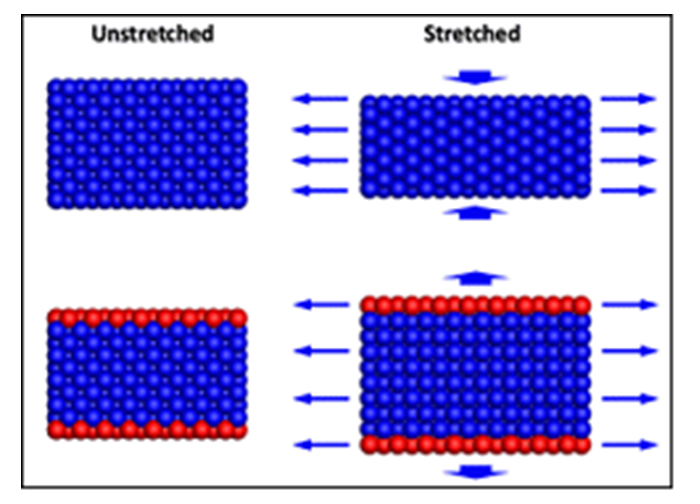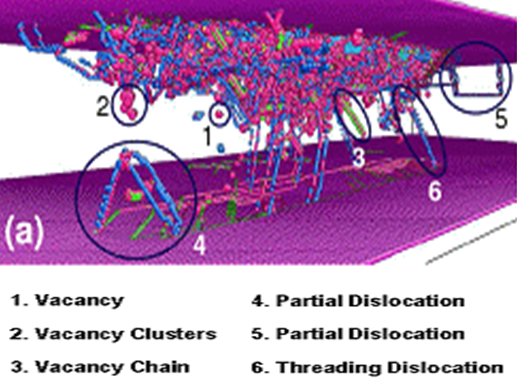Research Highlights : We are studying various mechanical responses of nanoplates due to the surface effect, such as ultrahigh strength, negative Poisson’s ratio, intrinsic instability, initiation of plasticity, large induced compressive stresses
Abstract : The Poisson’s ratio is a fundamental measure of the elastic-deformation behaviour of materials. Although negative Poisson’s ratios are theoretically possible, they were believed to be rare in nature. In particular, while some studies have focused on finding or producing materials with a negative Poisson’s ratio in bulk form, there has been no such study for nano-scale materials. Here we provide numerical and theoretical evidence that negative Poisson’s ratios are found in several nano-scale metal plates under finite strains. Furthermore, under the same conditions of crystal orientation and loading direction, materials with a positive Poisson’s ratio in bulk form can display a negative Poisson’s ratio when the material’s thickness approaches the nanometer scale. We show that this behaviour originates from a unique surface effect that induces a finite compressive stress inside the nanoplates, and from a phase transformation that causes the Poisson’s ratio to depend strongly on the amount of stretch
Resource : leopard, lion, falcon, Cheetah
Representative Thesis :
1. Ho D.T., Park S.-D., Kwon S.-Y., Park K., Kim S.Y.*, Negative Poisson’s ratios in metal nanoplates. Nature Communications (2014)
2. Kim S.Y.*, Park H.S., On the effective plate thickness of monolayer graphene from flexural wave propagation. Journal of Applied Physics (2011)

